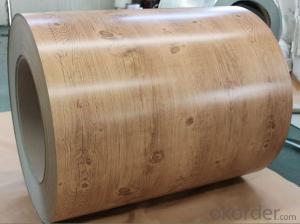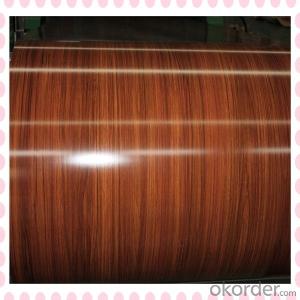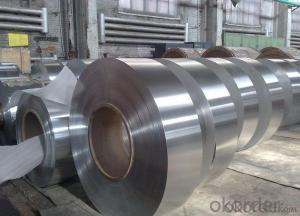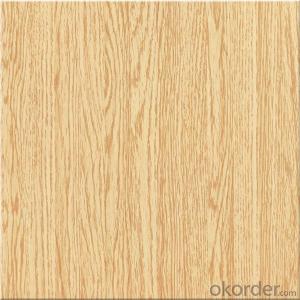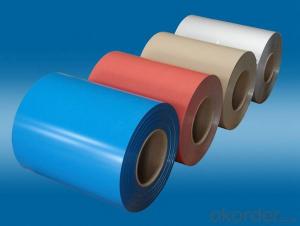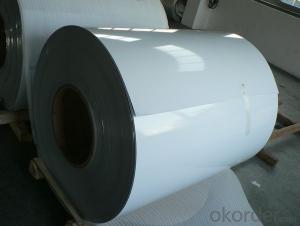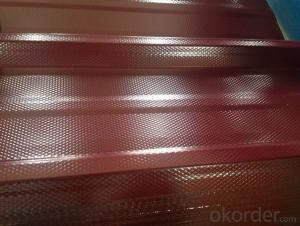Aluminum Coil for Wooden Coating Surface - Interior Wall System
- Loading Port:
- Shanghai
- Payment Terms:
- TT OR LC
- Min Order Qty:
- 5 m.t.
- Supply Capability:
- 10000 m.t./month
OKorder Service Pledge
OKorder Financial Service
You Might Also Like
Specification
1. Specification of Wooden Coating Surface Aluminum Coil for Interior Wall System
characteristics | Application |
1) Super peeling strength | 1) Building exterior curtain walls |
2) Excellent surface flatness and smoothness | 2) Decoration and renovation additions for old buildings |
3) Superior weather, corrosion, pollutant resistance | 3) Decoration of interior walls, ceilings, bathrooms, kitchens and balconies |
4) Even coating, various colors | 4) Shop door decorations |
5) Fireproof, excellent heat and sound insulation | 5) Advertisement board display platforms and signboards |
6) Superior impact resistance | 6) Wallboards and ceilings for tunnels |
7) Lightweight and easy to process | 7) Industrial materials, materials for vehicles and boats |
2. Application of Wooden Surface Coating Aluminum Coil for Interior Wall System
(1).Interior: wall cladding, ceilings, bathrooms, kitchens and balconies, shutters, doors...
(2).Exterior: wall cladding, facades, roofing, canopies, tunnels,column covers , renovations...
(3).Advertisement: display platforms, signboards, fascia, shop fronts...
3. Feature of Wooden Coating Surface Aluminum Coil for Interior Wall System
*Such coil is specially designed to replace aluminum ingot, due to the high export tax of aluminum ingot, the coil has better price than ingot.
*This type of coil can fit customer's remelting furnace just like ingot, no need to make any change to the production line that was previously used for ingot. The standard coil size and weight is very suitable for the feed gate of furnace.
*This type of coil causes less material wastage than ingot when remelted.
*Our coil is made directly from ore, no need to go though the ingot making process, quality is much better than other suppliers who use ingot scrap to make coil.
Be free from Oil Stain, Dent, Inclusion, Scratches, Stain, Oxide Dicoloration, Breaks, Corrosion, Roll Marks, Dirt Streaks and other defect which will interfere with use
4. Certificate:
SGS and ROHS(if client request, paid by client), MTC(plant provided), Certificate of Origin(FORM A, FORM E, CO), Bureau Veritas and SGS (if client request, paid by client), CIQS certificate
5. Image of Wooden Coating Surface Aluminum Coil for Interior Wall System
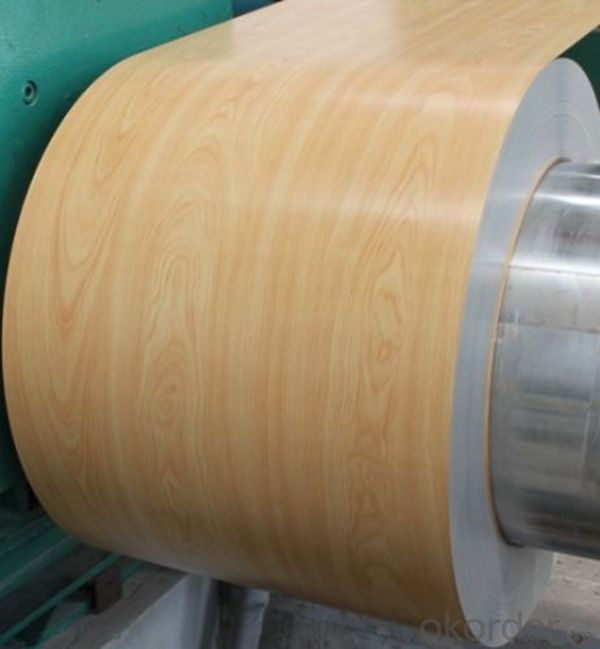
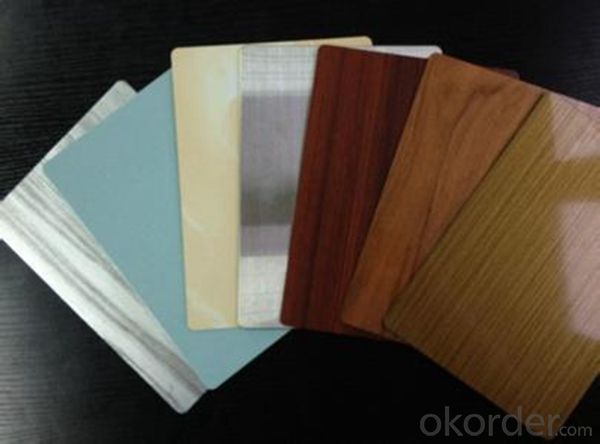
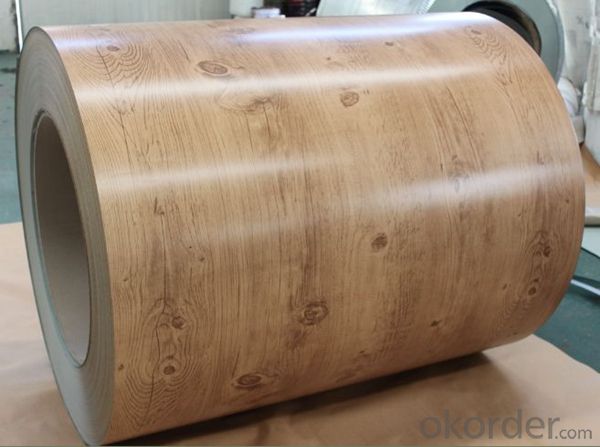
6. Package and shipping of Wooden Coating Surface Aluminum Coil for Interior Wall System
eye to wall
eye to the wall
with wood pallet (wooded case also available)
7. FAQ
1) What is the delivery time?
Dpends on actual order, around 20 to 35 days
2)What is the QC system:
We have QC staff of 20 persons and advanced equipment, each production is with MTC traced from Aluminum ingot lot.
3) What market do you mainly sell to?
Australia, America, Asia, Middle East, Western Europe, Africa etc
- Q: How do aluminum coils compare to nickel coils in terms of conductivity?
- Compared to nickel coils, aluminum coils typically exhibit lower electrical conductivity. This is mainly attributable to the fact that aluminum has a higher resistivity than nickel. Concerning conductivity, nickel emerges as a superior electrical conductor owing to its lower resistivity. Consequently, nickel coils are frequently favored in situations where high conductivity is vital, like in electrical circuits or heating elements. Nonetheless, it is crucial to acknowledge that aluminum coils still possess reasonable conductivity and may prove suitable for specific applications where cost-effectiveness or lightweight properties outweigh other considerations.
- Q: What are the different coil recoiling options available for aluminum coils?
- There are several coil recoiling options available for aluminum coils, depending on the specific requirements and desired outcomes. One option is the oscillate recoiling method, which involves winding the aluminum coil in a zigzag pattern. This technique helps to reduce coil set and improve flatness, making it suitable for applications where a flat, smooth surface is crucial. Another option is the traverse winding method, which involves winding the aluminum coil back and forth in a controlled manner. This technique helps to evenly distribute the tension across the coil, reducing the risk of coil breaks and ensuring consistent performance. Additionally, there are options for coil slitting and rewinding. Slitting involves cutting the aluminum coil into narrower strips, which can be rewound into smaller coils. This option is commonly used when smaller coil sizes are required for specific applications. Furthermore, some recoiling options include coil rewinding with tension control systems. These systems ensure that the tension applied during rewinding is controlled and consistent, helping to prevent overstretching or deformation of the aluminum coil. Overall, the choice of coil recoiling options for aluminum coils depends on factors such as the desired surface finish, coil size requirements, and specific application needs. Manufacturers and processors of aluminum coils can provide guidance and expertise in selecting the most suitable recoiling option based on these considerations.
- Q: who invented aluminum and or aluminum foil?
- placed extremely oil or butter on a paper napkin or paper towel and rub on the pan. do not forget the ends, it truly is the position pies especially stick. No, it truly is not had to oil an aluminum pan, in spite of the undeniable fact that the perimeters do look to adhere.
- Q: Can aluminum coils be used for architectural facades?
- Indeed, architectural facades can make use of aluminum coils. The lightweight, durable, and versatile nature of aluminum makes it a favored option for such purposes. With the ability to mold aluminum coils into diverse shapes and sizes, one can create unique and visually pleasing facades. Furthermore, aluminum demonstrates resistance to corrosion, rendering it suitable for outdoor use. Moreover, aluminum allows for easy coating or finishing, enabling an improved aesthetic appeal and protection against environmental factors. All in all, aluminum coils offer an economically viable and environmentally friendly alternative for architectural facades.
- Q: Are aluminum coils suitable for reflective insulation?
- Indeed, reflective insulation can indeed benefit from the use of aluminum coils. With its high reflectivity and low emissivity, aluminum proves to be an excellent material for deflecting radiant heat. By effectively reflecting radiant energy away from the insulated area, aluminum contributes significantly to reducing heat transfer. Unsurprisingly, aluminum coils find widespread application in various reflective insulation solutions, including foil-faced insulation boards and radiant barriers.
- Q: What are the different coil widths available for aluminum coils?
- The available coil widths for aluminum coils may vary based on specific requirements and manufacturing capabilities. However, typical coil widths for aluminum coils range from 12 inches (304.8 mm) to 60 inches (1524 mm). These standard widths are commonly utilized in construction, automotive, and packaging industries. Custom coil widths, narrower or wider than the standard range, can also be provided by manufacturers to meet specific customer needs. This allows for increased flexibility in design and application. It is important to acknowledge that the availability of specific coil widths may differ depending on the supplier and the aluminum alloy used. Therefore, it is advisable to consult a reputable aluminum coil supplier to determine the exact range of coil widths available for a particular project or application.
- Q: What house hold materials contain 100% pure aluminum. or where can i buy it. im making thermite, which ive made before so don't say, its dangerous don't do it, but do i need 100% pure aluminum or will some aluminum alloy with like 90% aluminum work?????
- Aluminum foil is your best bet. According the the Reynold's wrap web site, their foil is 98.5% aluminum.
- Q: Are there any recycling programs for used aluminum coils?
- Yes, there are recycling programs available for used aluminum coils. Aluminum is highly recyclable and can be melted down and reused without losing its quality. Many recycling centers and scrap metal yards accept aluminum coils for recycling. Additionally, some HVAC (Heating, Ventilation, and Air Conditioning) companies have their own recycling programs for used aluminum coils, as they are commonly used in air conditioning systems. It is always recommended to check with your local recycling center or HVAC companies to inquire about specific recycling programs for used aluminum coils in your area.
- Q: Are aluminum coils compatible with other materials?
- Yes, aluminum coils are compatible with other materials. Aluminum is a versatile and widely used material that can be easily integrated with various other materials in different applications. For example, aluminum coils can be used in conjunction with copper tubing in air conditioning and refrigeration systems to enhance heat transfer efficiency. Additionally, aluminum coils can be coated or laminated with other materials such as polymers or paints to provide additional protection against corrosion, improve aesthetics, or enhance specific performance characteristics. Therefore, aluminum coils offer compatibility with a range of materials, making them suitable for diverse applications in industries such as construction, automotive, aerospace, and more.
- Q: Can aluminum coils be used in the production of solar reflectors?
- Yes, aluminum coils can be used in the production of solar reflectors. Aluminum is a common choice due to its high reflectivity and durability, making it suitable for reflecting and directing sunlight efficiently in solar energy systems.
Send your message to us
Aluminum Coil for Wooden Coating Surface - Interior Wall System
- Loading Port:
- Shanghai
- Payment Terms:
- TT OR LC
- Min Order Qty:
- 5 m.t.
- Supply Capability:
- 10000 m.t./month
OKorder Service Pledge
OKorder Financial Service
Similar products
Hot products
Hot Searches
Related keywords
